Monday, Tuesday, and Wednesday of this week are Rogation Days in anticipation of Ascension Thursday.
Below are directions from Fr. Sullivan, OSB, 1952 and a few blessings from the traditional Roman Ritual.
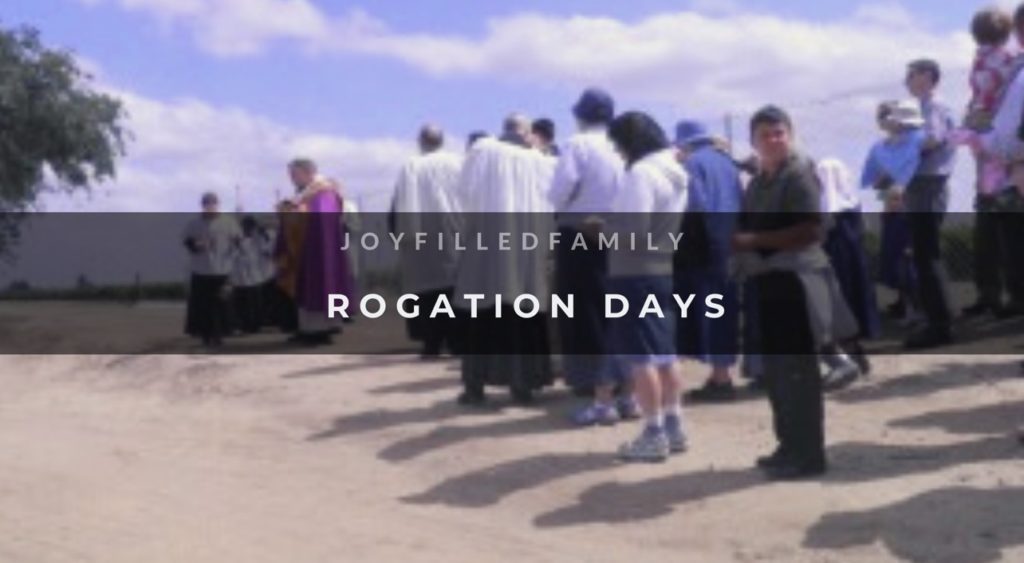
➕
If our Holy Mother the Church seems to multiply her blessings over the farm home, and have few left for the city apartment, it is not because she is partial to her children in the country and forgetful of city children, but because she is a realist—like every woman. She knows that from the farm homes comes the world’s food supply.
That is why she has composed so many sacramental blessings for the farmer. That is why she has instituted the rogation days, the three days before the Feast of the Ascension of Our Lord.
But these rogation prayers and the sacramental blessings for the farmer are not for the exclusive welfare of the country people; such blessings are for the welfare of all the members of Christ’s Body on earth—for those who live in little towns and big towns—for the rosy cheeked country urchin who has the wide open fields for a playground, and for the pale little girls whose backyard is closed in by smokestacks and ugly unpainted buildings—for the farmer plowing in his field in the bright sun, and for the subway guard who seldom sees the light of day. For all members of Our Lord’s Body are dependent on one another.
If the farmer is blessed with a good harvest, the city dweller has plenty of good food; if the city dweller makes a living wage, he can buy the farmer’s food. It is this universal dependence of the members of Christ’s Body on one another that makes the blessing of the farmer a blessing also for the dwellers in the city apartments.
It is faith that traces the origin of good food beyond the corner grocery store to the wholesale dealer to the shipper—beyond the shipper to the farmers whose job it is to produce food, and beyond the farmer to God the Creator Who gives the increase to the harvest.
So it is fitting for the man or woman in the city cathedral as well as the farmer in the little rural church to pray together on rogation days: “That Thou wouldst please to give and preserve the fruits of the earth…we beseech Thee hear us.”
The litany of the Saints and the psalms sung during procession on rogation days are supplications—hence the word, rogation (from the word rogare which means to ask). During this season the faithful ask God to protect them from danger and disaster, and to bless especially the harvest so that the whole of Christ’s Body may be fed.
The rogation days are also called the days of the minor litanies, because according to the rubric of the ritual, it is customary for the pastor and his flock to go in procession through the fields of the parish changing the litany of the Saints and other prayers. There is another solemn procession through the fields on the 25th of April which is called the major litanies. This also happens to be St. Mark’s day, but there is no connection between the Evangelist’s feast and the procession.
Because most of our modern parishes are in the city and small town, and have no fields through which to march, the rogation day procession usually takes place on the parish property, or even inside the parish church itself; here at St. Meinrad’s the student-body together with the people of the parish march in solemn procession to the chapel of Our Lady of Monte Cassino a mile through the village and across the valley, chanting the litany of the Saints. There the Mass of rogation is offered by the priest in charge of the abbey farm.
The celebration of the minor and major litanies are only four days during the year when the Church solemnly asks blessings upon the harvest, but besides the rogation day blessings there are numerous sacramentals in the Roman ritual which may be used with spiritual profit by the faithful especially by the folks who live on the farm. Here are some the principal blessings which the Christian farmer may use.
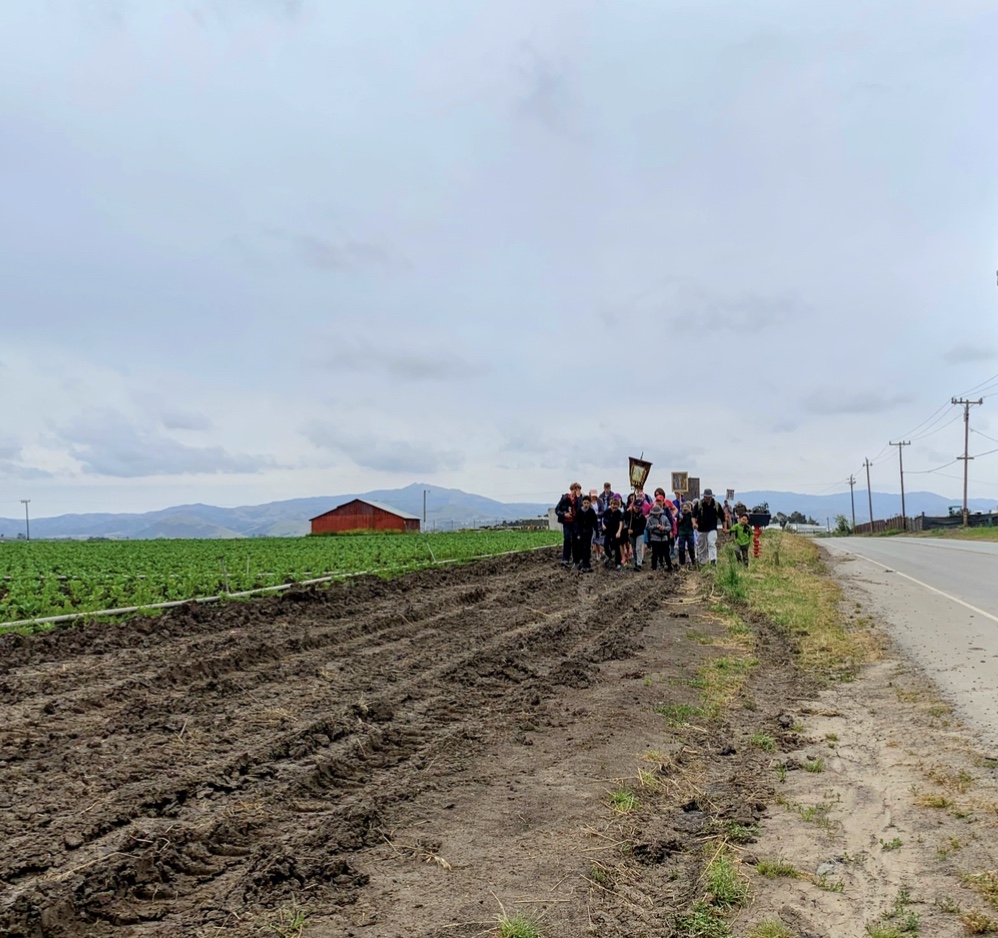
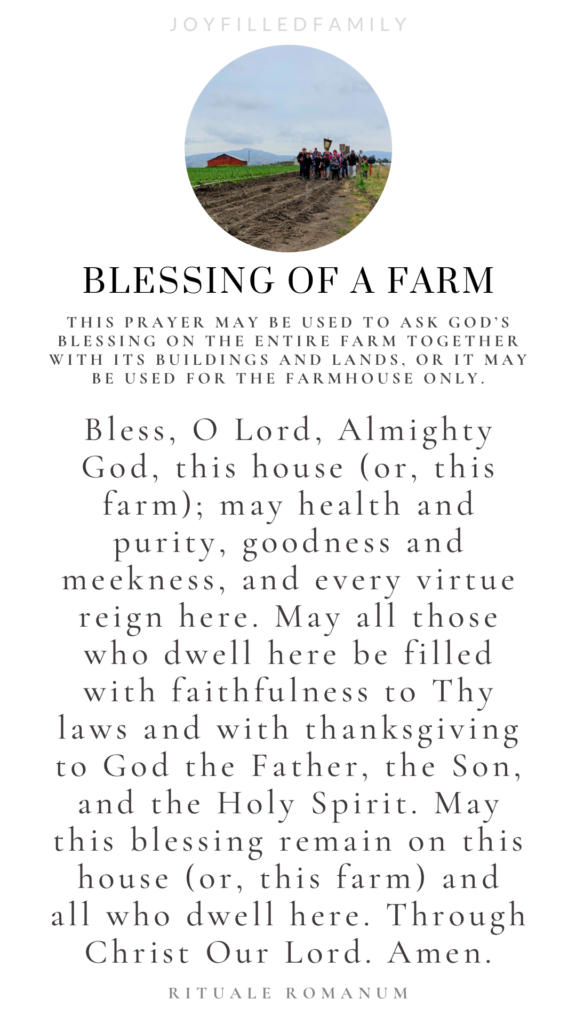
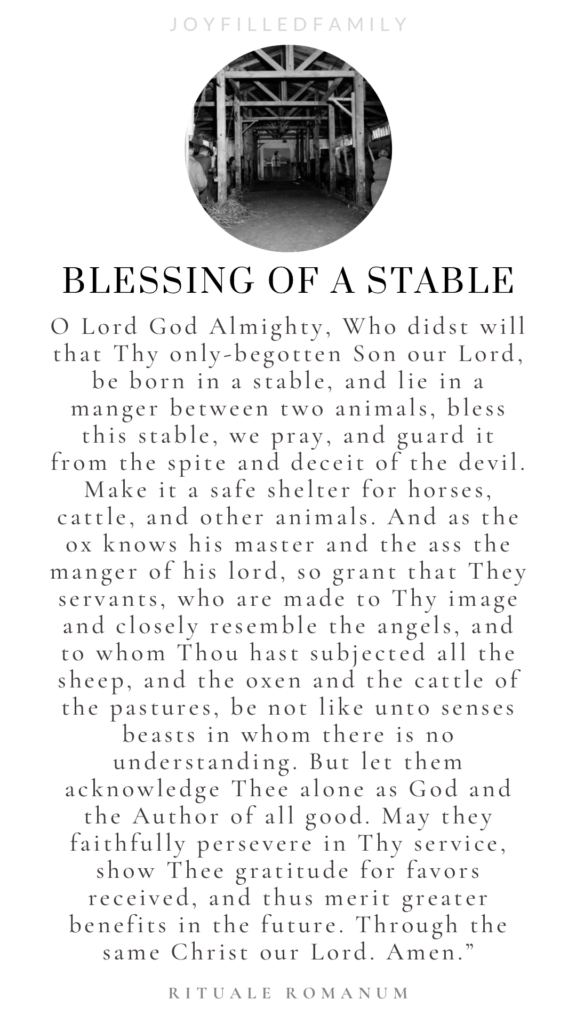
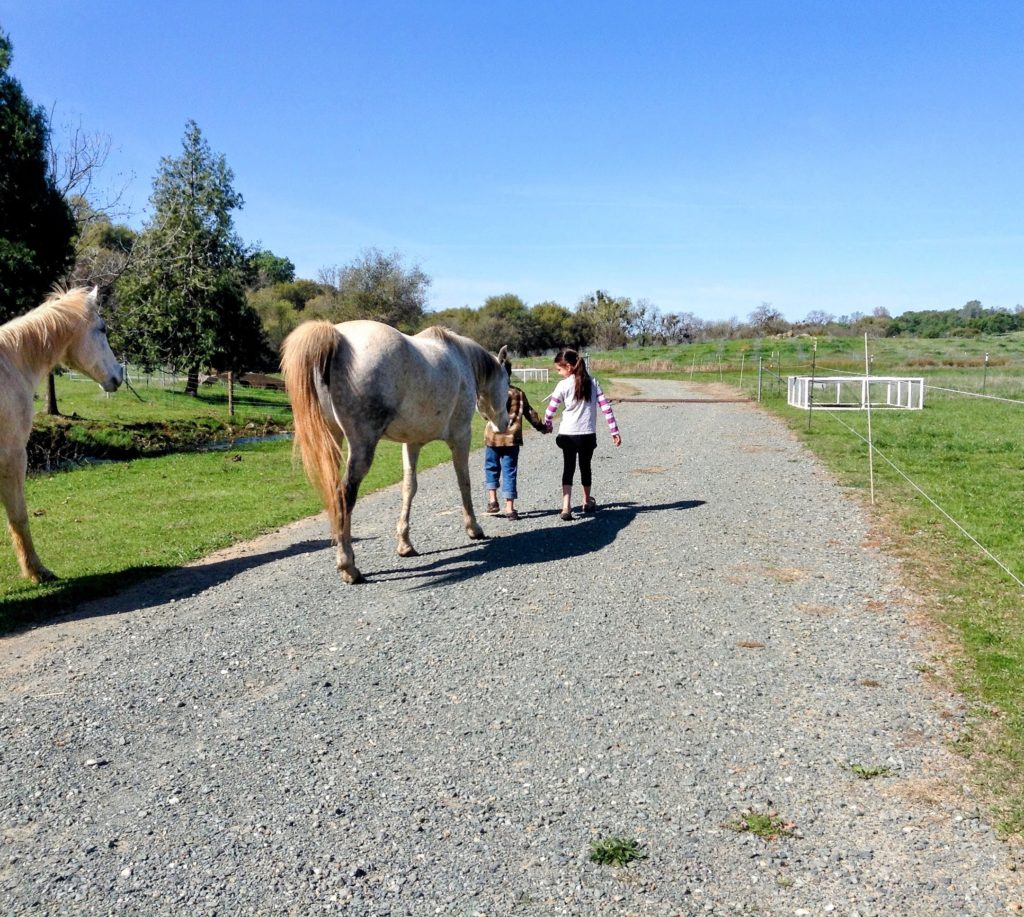
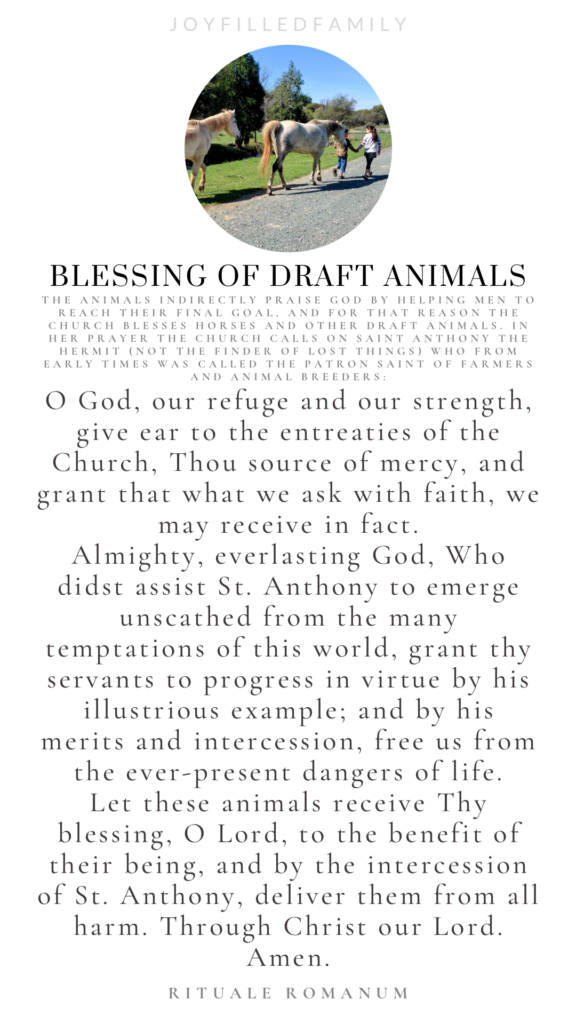
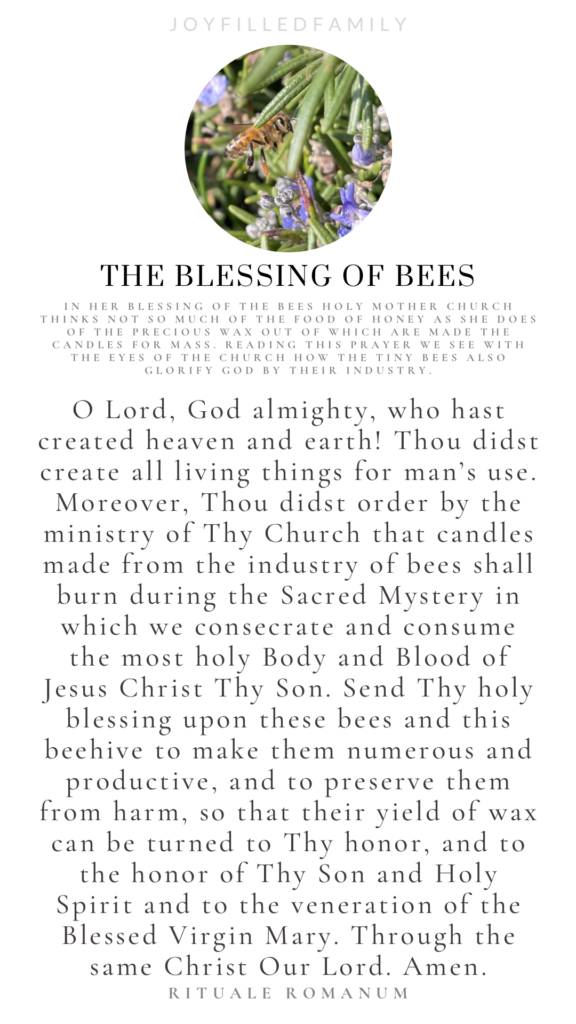
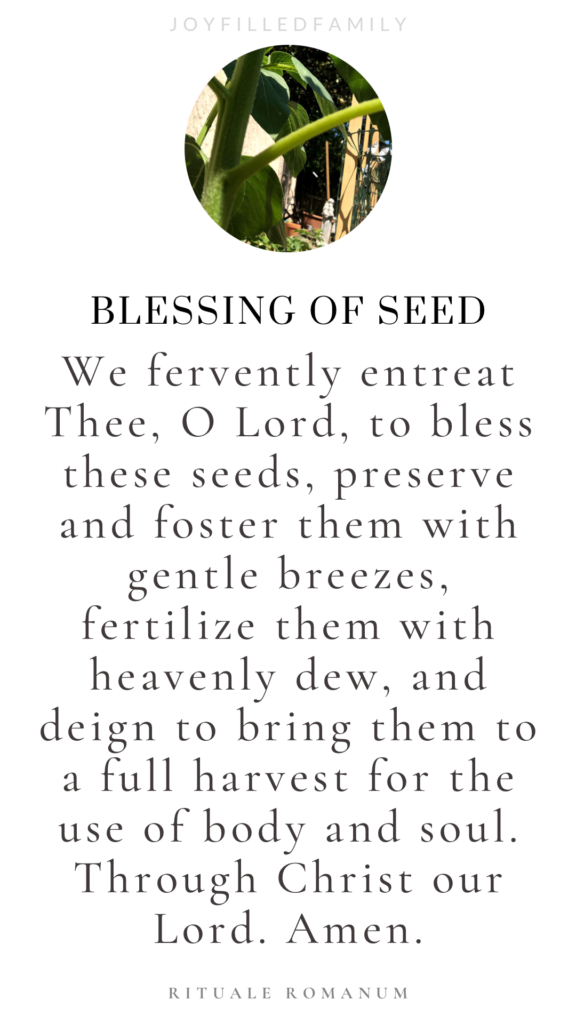
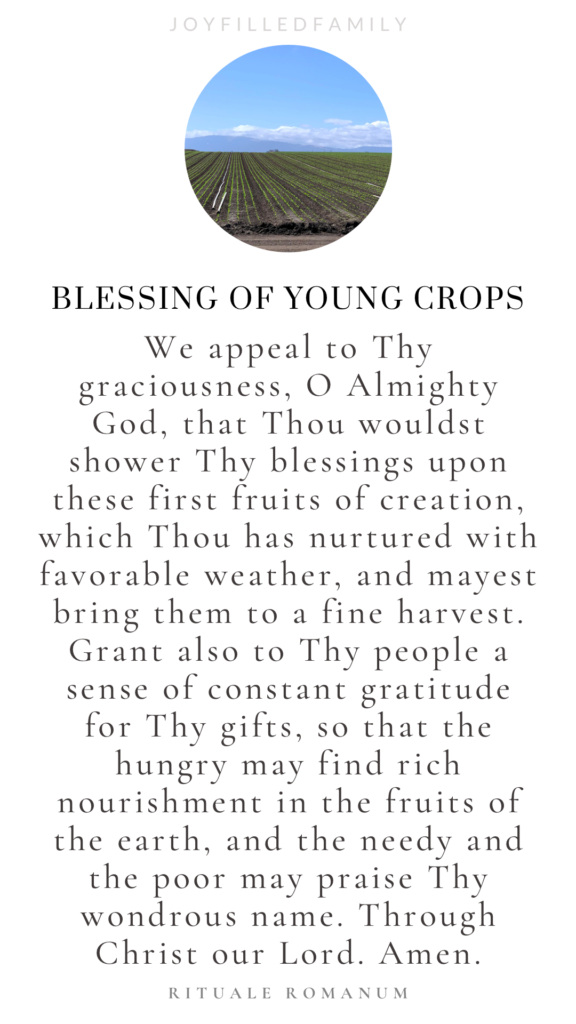
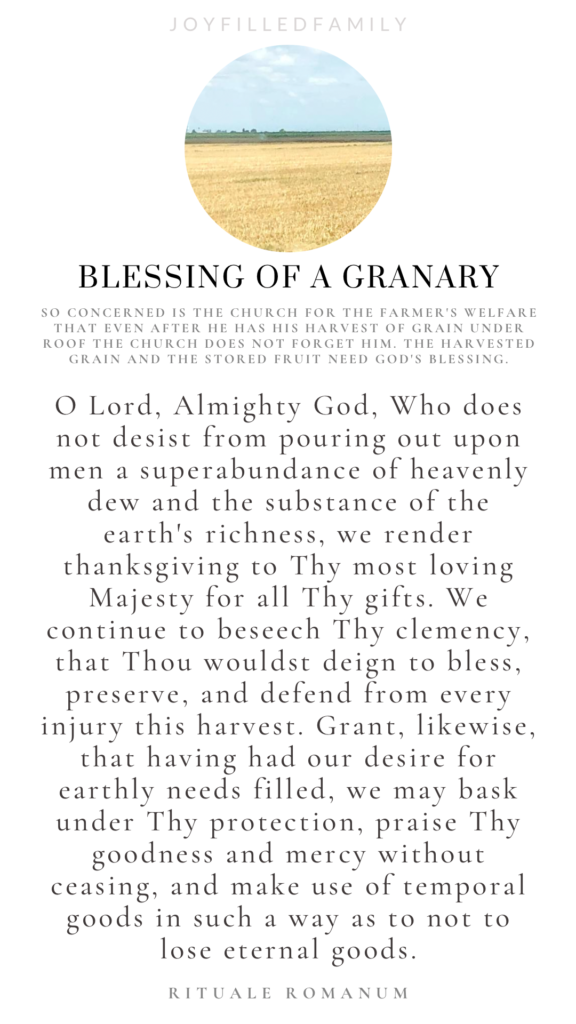
Leave a Reply